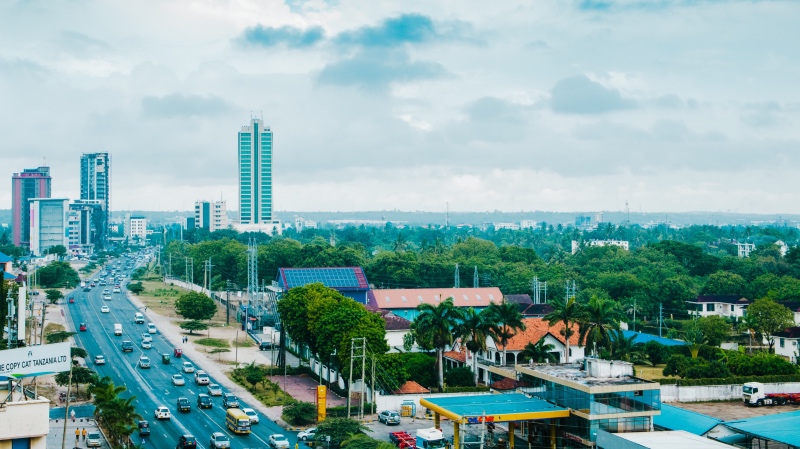Dakar, Senegal
Thomson Reuters Foundation
Tanzania’s main city Dar es Salaam did not have traffic signs, speed bumps or footpaths outside many schools, although children walking to class were being hit by cars on a regular basis.
So SARSAI, a small non-profit program in Africa, got the government’s permission to install these features itself, reducing child injuries by 26 per cent in the focus schools.

Traffic in Dar es Salaam, Tanzania’s main city. PICTURE: K15 Photos/Unsplash
On Wednesday, the programme won a $US250,000 award to expand its work from the US-based World Resources Institute which launched the Ross Prize for Cities this year to recognise achievements in urban transformation.
“In a lot of the development world, when people think of cities they don’t often think of children – and when they do the vast majority thinks in terms of playgrounds,” said Jessica Seddon, director of integrated urban strategy at WRI.
“Looking at that movement between home and school and the ease of navigating the city when you’re three feet tall was a fresh perspective,” she told the Thomson Reuters Foundation.
SARSAI, which stands for School Area Road Safety Assessments and Improvements, started its work in Dar es Salaam in 2012, focusing on the most high-risk schools and collecting traffic data on what interventions might help.
It now works in nine African countries and is shifting toward advocacy, showing governments that simple, low-cost measures can save lives, said programme director Ayikai Poswayo.
“Road safety is one of those issues which doesn’t get as much attention as it should considering the problems it’s causing in Africa,” Poswayo said. SARSAI is just one programme of the road safety-focused charity Amend.
Road traffic injuries are the leading cause of death for people aged five to 29 worldwide, and Africa has the highest rates per population, according to the World Health Organization.
The dangers are due to many factors including poor planning, poor infrastructure and weak law enforcement, said Poswayo.
“At the end of the day it really can’t be a small NGO like us putting in safe infrastructure at school areas,” she said.
Some progress has been made.
In Namibia’s capital Windhoek, SARSAI convinced the city to reduce speed limits in school areas. In Ghana’s capital Accra, it helped the mayor’s office draft a pedestrian action plan.
“Because it was so easy to see how this could be done in many more places, that was a big appeal,” said Seddon of WRI.






